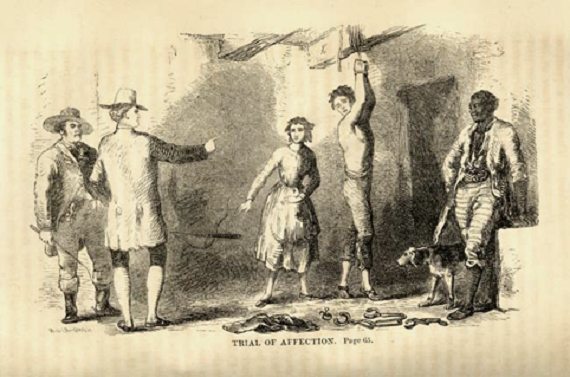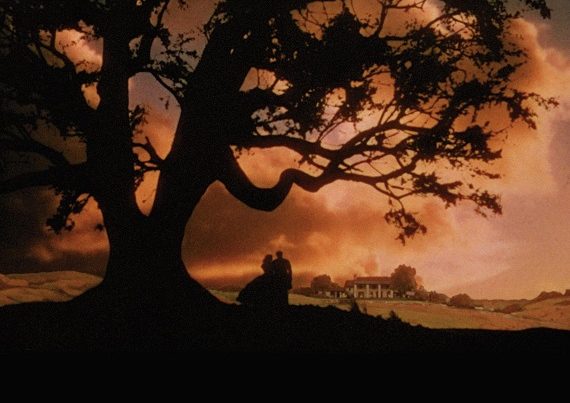Many modern Americans believe that slavery was a national unpardonable sin and that slaveholders were evil people unworthy of any respect or admiration. No one escapes this denunciation, including the Founding Fathers. They will give innumerable reasons why slavery was morally wrong, and while modern Western Civilization has generally accepted slavery as a morally reprehensible institution, judging historical actors by present moral and ethical standards destroys real historical inquiry and understanding.
At the same time, many of these people are also pro-abortion, and the same arguments they use to condemn slaveholders can be used against them to condemn abortion. Some modern anti-abortion activists have, in fact, labeled themselves “abolitionists” to grab the moral high-ground. This drives the left crazy.
Of course, the past is more complex than what many of these self-righteous modern anti-slavery crusaders admit or understand.
For example, most of these people purposely omit (or do not know) several important facts:
Africans sold other Africans to the slave traders. The first step in the slave trade was taken by Africans preying upon their fellow Africans when stronger black tribes captured them in the interior of the African continent. Africans dominated the trade. They acquired the slaves, determined “prices”, and organized the Trans-Atlantic slave economy.[1]
Black Slaveowners? Tens of thousands of black Americans owned slaves, and they did so primarily for economic profit and exploitation of labor. According to several detailed studies, black slaveowners were numerous in places like Louisiana and South Carolina. Everyone has heard of the Denmark Vesey conspiracy in 1822, but most people do not know that the slave who foiled the plot gained his freedom and immediately used the cash compensation from his efforts to acquire slaves. He circulated in the large Charleston slaveholding free black community and used slavey to pad his wallet.[2]
The northeastern United States was deeply involved in slavery and the slave trade. The northern maritime industry dominated the slave trade. Rhode Island was responsible for half of all U.S. slave voyages. James DeWolf and his family may have been the most prominent slave traders in U.S. history, but many others were involved. For example, members of the Brown family of Providence, some prominent in the slave trade, gave substantial gifts to Rhode Island College, later renamed Brown University.
While local townspeople thought of the DeWolfs and other prominent families primarily as general merchants, distillers, and traders who supported shipbuilding, warehousing, insurance, and other trades and businesses, common knowledge was that one source of this business was the cheap labor, and huge profits reaped from human trafficking.[3]
From Boston comes the story of Peter Faneuil, a man of great wealth who gave the city of Boston Faneuil Hall, which became known as the “cradle of liberty.” It was in this building, a local and national shrine, that many patriot meetings were held before the Revolutionary War. One such meeting resulted in the famous “Boston Tea Party.” What is not told about Faneuil is that he was a major backer of a slaving venture.[4]
How was slavery abolished in the North? No law was ever passed in the North to grant freedom to a person already in slavery. All people who were enslaved when the law was passed would remain slaves. They would be freed after a specific date and after a child reached a given age. The law could be circumvented by selling them in a Southern state where they would remain slaves; then, as the change jingled in their pockets, they would point their fingers at the evil Southern slave owner.[5]
How were free blacks treated in the North? New Jersey passed one of the first of these laws. It prohibited free blacks from settling in their state. Massachusetts passed a law that allowed the flogging of blacks who came into their state and remained longer than two months.[6]
In 1853, Indiana’s constitution stated that “. . . no negro or mulatto shall come into or settle in the state. . . .”[7] Illinois in 1853 enacted a law “. . . to prevent the immigration of free negroes into this state. . . .”[8]
Not satisfied with a mere statute, in 1862, Illinois passed by overwhelming popular vote an amendment to the state’s constitution declaring that “No negro or mulatto shall immigrate or settle in this state.”[9]
Oregon’s 1857 constitution provided that “No free negro or mulatto, not residing in this state at the time of adoption [of the constitution of the state of Oregon] . . . shall come, reside, or be within this state. . . .”[10]
For a more exhaustive study of this subject, I recommend the book North of Slavery: The Negro in the Free States, 1790-1860 by Leon F. Witwack.
Child Labor. Before child labor laws, children as young as five or six years old often worked in factories, including cotton mills. In 1904, 25% of mill workers were children, and almost half were under 12. Children worked long shifts, sometimes up to 12 hours, in dangerous conditions with poisonous gases, chemicals, and deadly machinery. Mill owners paid children only a tenth of what adults earned. For example, in 1911, Katie, age 13, and Angeline, age 11, hand-stitched Irish lace to make cuffs and earned about $1 a week.
In the United States, children worked legally in many settings after the War Between the States, including industrial settings, retail stores, streets, farms, and home-based industries. In 1900, efforts to regulate or eliminate child labor became central to social reform led by the National Child Labor Committee and state child labor committees. The Fair Labor Standards Act of 1938 prohibited children under 16 from working full-time hours and made it illegal for them to help create products that were transported across states. A Southern woman, Lucy Randolph Mason from Virginia, helped ensure the passage of the 1938 Fair Labor Standards Act.
The North championed the cause of equality, racial tolerance, and human brotherhood? I don’t think so. No myth is more ridiculous. In the book Democracy in America by Alex de Tocqueville, he noted, “The prejudice of the race appears to be stronger in the States that have abolished slaves than in the States where slavery still exists.”
It is easier to criticize somebody else than to see yourself.
*********************************
[1] See John Thornton, Africa and Africans in the Making of the Atlantic World, 1400-1800 (New York: Cambridge University Press, 1998).
[2] See Larry Koger, Black Slaveowners: Free Black Slave Masters in South Carolina, 1790-1860 (McFarland Press, 1985).
[3] https://www.tracingcenter.org/resources/background/northern-involvement-in-the-slave-trade/
Anne Farrow, Joel Lang, Jenifer Frank, Complicity: How the North Promoted, Prolonged, and Profited from Slavery (Ballantine Books);
Daniel P. Mannix, Black Cargoes (The Viking Press, New York, NY: 1962), pp. 104-130.
[4] Ibid, p. 162.
[5] For a concise history of slavery in the North, see http://slavenorth.com/index.html
[6] George Moore, A History of Slavery in Massachusetts, (D. Appleton and Company, New York, NY: 1866), pp. 228-29.
[7] Beverly B. Munsford, Virginia’s Attitude Toward Slavery and Secession (L. H. Jenkins, Inc., Richmond, VA: 1915), p. 171.
[8] Ibid.
[9] Ibid, p. 172.
[10] Ibid.







Great summary of a topic that most Yankees (especially Republicans up until today) cannot be blind to, so they necessarily lie about.
There were 250,000 free blacks in the Confederate States…most of them free because their Christian White owners freed them and did not pass them on to the owners’ heirs.
If they had been mistreated in the South, surely they’d have just moved north…if northern States had allowed this migration.
Louisiana Confederate Native Guard was formed by over 1000 free black men in New Orleans…they volunteered to form a militia and fight for their nation and State. After New Orleans fell, they were FORCED to join the union army.
So…they VOLUNTEERED TO FIGHT FOR THE SOUTH…and they were ORDERED into the union army. Who wrote the history books? Who makes this glaring contradiction known in this day and age?
We do.
By the way, if you ask one of the “Ai” platforms these questions, it will give you the correct answer…after you pin it down and let it know when it’s lying to you.
“The law could be circumvented by selling them in a Southern state where they would remain slaves”
Hence the expression for betrayal; ‘getting sold down the river’, the river being the mighty Mississippi
On a recent visit to Great River Road Museum in Darrow LA, I was shocked to learn how many free black men owned slaves and sugar plantation in Louisiana. Some names I learned about Andrew Durnford and Antoine Dubuclet.